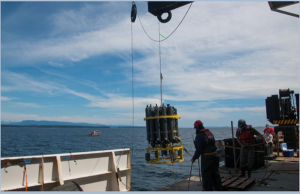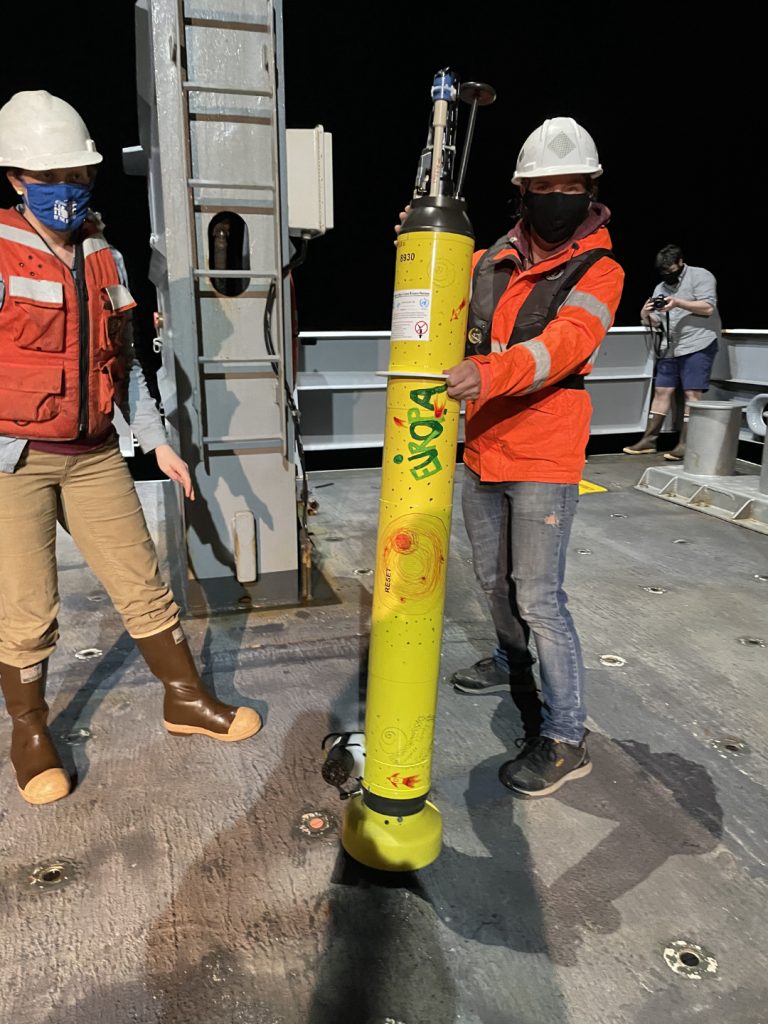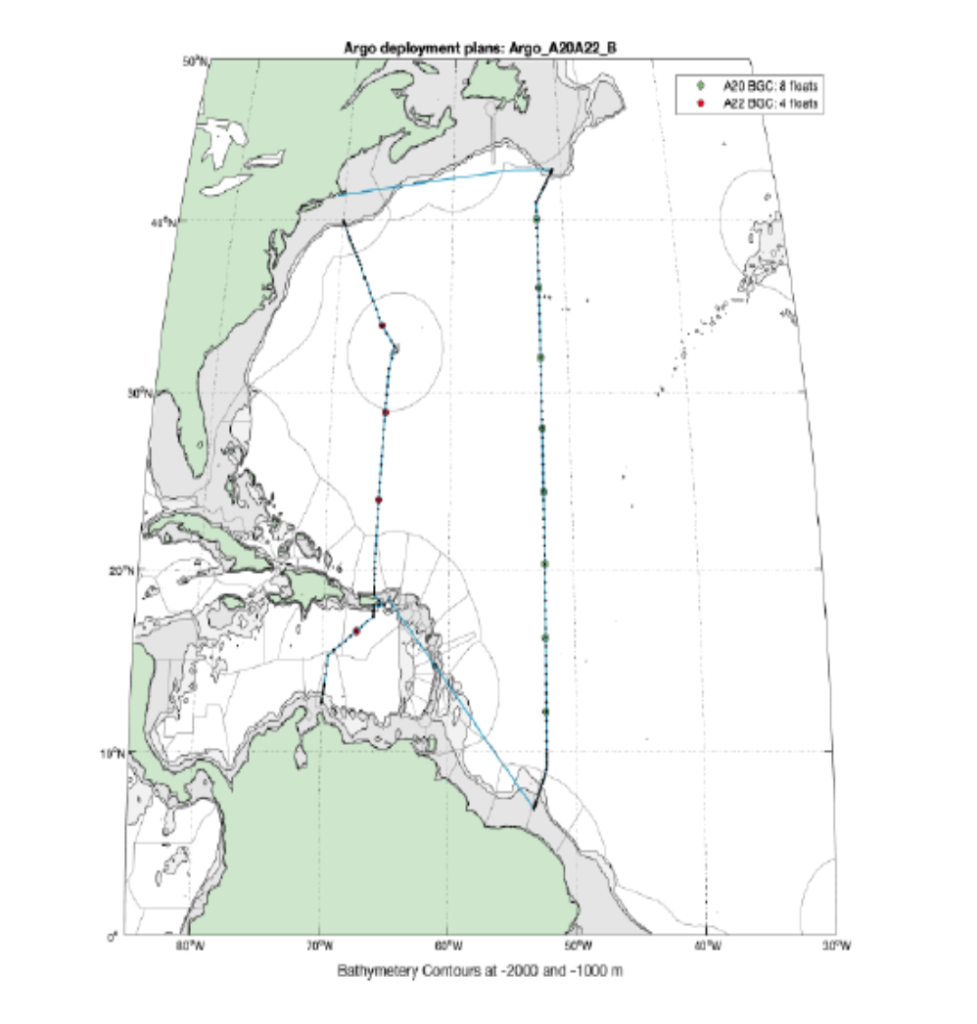Piloting Bio-GO-SHIP on US cruises to Study Plankton and Ocean Processes
 Piloting Bio-GO-SHIP on US cruises: Towards a global analysis of large-scale changes to ocean plankton systems
Piloting Bio-GO-SHIP on US cruises: Towards a global analysis of large-scale changes to ocean plankton systems
NOAA’s Global Ocean Monitoring and Observing Program (GOMO) and Integrated Ocean Observing System (IOOS), in partnership with NASA Ocean Biology and Biogeochemistry Program, recently awarded $500,000 via the National Ocean Partnership Program (NOPP) to several institutions to assess marine ecosystem health and the influence of changing ocean dynamics on plankton. This two-year project is part of a larger multi-agency effort and will leverage the global-reaching NOAA- and NSF-led U.S. Global Ocean Ship-based Hydrographic Investigations Program (GO-SHIP) platforms to investigate the distributions and biogeochemical roles of plankton in the global ocean.
Plankton are critical microscopic organisms that sustain entire marine food webs, and through their photosynthesis, phytoplankton generate approximately half of the oxygen in the atmosphere. Ocean biological measurements are fundamental to studying and monitoring the evolving state of marine ecosystems but are currently missing from most global survey programs, which has impeded our capacity to explore the inextricable links between climate, changing ocean conditions, and marine life. Integration of biological and core GO-SHIP measurements will provide invaluable insights into how plankton communities respond to ocean changes and how biological processes feed back on carbon, oxygen and nutrient cycles. The availability of mature technologies to measure key biological variables (Boss et al., 2020), combined with the potential to leverage the GO-SHIP operational platform and its large suite of complementary physical and biogeochemical measurements (e.g., temperature, salinity, O2, nutrients, tracers, organic and inorganic carbon) offer for the first time ever the opportunity for a truly integrated global repeat sampling program.
Over the next two years, a team of researchers will incorporate biological measurements on three U.S. GO-SHIP hydrographic cruises in the Atlantic, Pacific and Indian Oceans using established methodologies, novel techniques, and cross-disciplinary ocean observations as recommended by SCOR WG154 (Boss et al., 2020). This research team includes NOAA/OAR/AOML, NOAA/NESDIS/STAR, University of Maine, University of California at Irvine, Oregon State University, Old Dominion University, Mississippi State University, Bigelow Laboratory for Ocean Sciences, and the Woods Hole Oceanographic Institution.
Specifically, this project will quantify the molecular diversity, size spectrum, chemical composition, and abundances of plankton communities across large spatial, vertical, and eventually temporal scales through systematic, high quality, and calibrated sampling of genomics, transcriptomics, plankton imaging and cytometry, pigments (in situ and also used for calibration/validation of ocean color satellite sensors), particle chemistry, and optical techniques as operational oceanographic tools.
For more information, visit biogoship.org and supporting research:
Larkin, A.A., Garcia, C.A., Garcia, N. et al. High spatial resolution global ocean metagenomes from Bio-GO-SHIP repeat hydrography transects. Sci Data 8, 107 (2021). doi.org/10.1038/s41597-021-00889-9
Lucas J. Ustick, Alyse A. Larkin, Catherine A. Garcia, et al. Metagenomic analysis reveals global-scale patterns of ocean nutrient limitation. Science 16 Apr 2021:Vol. 372, Issue 6539, pp. 287-291 DOI: 10.1126/science.abe6301

